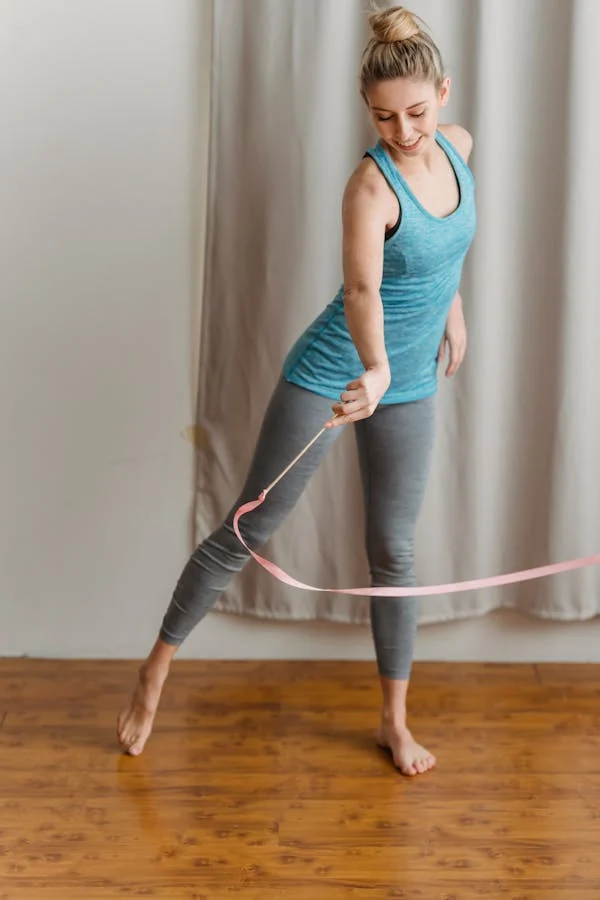When trying to conceive, many couples focus on diet and lifestyle changes, but one question that often arises is: does exercise help fertility? The answer is not always straightforward. While physical activity is well-known for its many health benefits—such as improving heart health, managing weight, and reducing stress—it can also play a significant role in boosting fertility.
However, the type, intensity, and frequency of exercise are critical factors to consider. Moderate exercise can help balance hormones, improve blood circulation, and reduce anxiety, all of which are essential for reproductive health.
On the other hand, excessive exercise or extreme physical activity may harm fertility by causing irregular menstrual cycles or affecting hormone production.
In this blog post, we will explore how physical activity can support your fertility journey, identify the best types of exercises, and discuss the balance needed to enhance your chances of conception naturally.
How Physical Activity Impacts Fertility:
Physical activity can positively impact fertility by supporting overall reproductive health. Regular exercise helps regulate hormones that are crucial for ovulation and sperm production, both of which are key to conception.
Exercise improves blood flow to the reproductive organs, promoting better egg and sperm health. Additionally, it helps maintain a healthy weight, which is vital because being either underweight or overweight can negatively affect fertility by disrupting the hormonal balance.

However, when people ask, does exercise help fertility, it’s important to consider the balance. While moderate exercise can enhance fertility, over-exercising or engaging in high-intensity workouts can sometimes have the opposite effect.
Intense physical activity can lead to irregular menstrual cycles, lower body fat levels, and a decrease in essential reproductive hormones like estrogen and progesterone. For men, overtraining may lower testosterone levels and decrease sperm quality.
Hormonal Balance and Its Role in Fertility:
Exercise helps regulate hormones like insulin and cortisol, which can impact fertility. For women with conditions like polycystic ovary syndrome (PCOS), physical activity improves insulin sensitivity and can restore ovulation.
In men, regular exercise supports testosterone production, enhancing sperm quality and reproductive function. However, hormonal disruption from excessive exercise can harm fertility.
Does Exercise Help Fertility? Understanding the Science:
The question does exercise help fertility has intrigued researchers and fertility experts for years. Scientific studies reveal that moderate exercise can indeed play a positive role in enhancing fertility, but the relationship between exercise and fertility is nuanced.
A growing body of research shows that regular physical activity helps improve overall health, which in turn supports reproductive health. It does this by regulating key hormones, promoting a healthy weight, reducing stress, and improving circulation—all factors that can boost fertility in both men and women.
How Moderate Exercise Improves Fertility
Moderate exercise has been shown to benefit women trying to conceive by helping regulate their menstrual cycles and encouraging ovulation.
Regular physical activity can improve the body’s sensitivity to insulin, which is crucial for women with conditions like polycystic ovary syndrome (PCOS). PCOS is a leading cause of infertility, and exercise helps manage its symptoms by balancing insulin levels and potentially restoring ovulation.
For men, moderate exercise improves sperm quality. Studies have shown that men who engage in regular exercise tend to have healthier sperm in terms of motility, quantity, and structure, compared to sedentary men. Physical activity also helps men maintain healthy testosterone levels, which are essential for fertility.
The Risks of Excessive Exercise
While moderate exercise is beneficial, excessive exercise can have the opposite effect. Over-exercising can lead to hormonal imbalances, particularly in women, where it may result in irregular or absent menstrual cycles (amenorrhea).
This happens because excessive physical activity, combined with low body fat, can suppress the production of reproductive hormones like estrogen and progesterone, which are crucial for ovulation and maintaining pregnancy. In men, extreme exercise can lower testosterone levels and reduce sperm count and quality.
What the Science Says: Finding the Right Balance
Scientific evidence supports the idea that the type, intensity, and duration of exercise play a crucial role in determining how it impacts fertility. A 2012 study published in Fertility and Sterility showed that women who engaged in moderate exercise for about 30 minutes a day had a higher chance of conception than those who were either completely sedentary or over-exercising.
This finding emphasizes the importance of balance when it comes to physical activity.
In conclusion, when answering the question does exercise help fertility, the science suggests that while moderate exercise is highly beneficial for reproductive health, over-exercising can harm fertility. Achieving the right balance in physical activity is key to enhancing fertility outcomes for both men and women.
Best Types of Exercises to Support Fertility:
Choosing the right types of exercise can significantly support fertility, as physical activity can enhance reproductive health when done in moderation.
The best exercises are those that promote overall wellness without placing excessive strain on the body, helping regulate hormones, reduce stress, and maintain a healthy weight.
But when people ask, does exercise help fertility, it’s essential to understand which exercises are most effective and safe for those trying to conceive.
Low-Impact Cardio
Low-impact cardio exercises like walking, swimming, and cycling are ideal for boosting fertility. These activities improve blood circulation throughout the body, including to the reproductive organs, which helps optimize their function.

Walking for at least 30 minutes a day has been shown to reduce the risk of ovulatory infertility and is gentle enough for women at any fitness level. Swimming and cycling are great alternatives that provide cardiovascular benefits without putting excessive strain on the joints or body.
Low-impact cardio is especially beneficial for reducing stress, which can negatively impact fertility by causing hormonal imbalances. Engaging in these exercises regularly can help stabilize stress hormones like cortisol, allowing the body to focus on reproductive functions.
Yoga and Pilates for Stress Reduction
Yoga and Pilates are particularly effective in supporting fertility, as they help balance the mind and body. Stress is a significant factor in fertility issues, and yoga’s combination of physical movement and deep breathing techniques can reduce stress hormones, promoting hormonal balance.
Some specific yoga poses, like the “bridge pose” and “butterfly stretch,” are known to improve blood flow to the pelvic area, which may aid reproductive health.
Pilates focuses on strengthening the core and enhancing flexibility, both of which are important for maintaining good physical health during pregnancy. These exercises also improve posture and reduce back pain, making them great options for women looking to boost fertility while keeping stress levels in check.
Strength Training for Hormonal Balance
Strength training exercises like weight lifting and resistance band workouts can help regulate insulin and other hormones that impact fertility.
In women with conditions like polycystic ovary syndrome (PCOS), strength training helps improve insulin sensitivity, which can restore ovulation. These exercises also help in maintaining a healthy body weight, which is critical for both male and female fertility.
However, it is important not to overdo strength training. A moderate approach, focusing on controlled movements and avoiding excessive lifting, can promote muscle tone and hormonal balance without disrupting menstrual cycles or testosterone levels in men.
Aerobic Exercise for Cardiovascular Health
Aerobic exercises, such as light jogging or dancing, support cardiovascular health, which is important for fertility because it improves blood flow to the reproductive organs. Aerobic activity helps reduce inflammation, regulate weight, and improve overall health, making it easier for the body to focus on reproductive processes.
When answering the question does exercise help fertility, the key lies in the balance. Aerobic exercises can improve fertility, but high-intensity sessions should be approached with caution. High-intensity training, if done excessively, can lead to hormone disruption and negatively affect reproductive health, especially in women.
Creating an Exercise Routine for Fertility:
Developing a well-balanced exercise routine is essential for those looking to enhance fertility. When it comes to answering the question does exercise help fertility, the key lies in finding the right balance of physical activity that supports hormonal health, promotes overall well-being, and reduces stress without overwhelming the body.
A fertility-friendly workout routine should include moderate exercises that boost reproductive health while avoiding excessive strain or intensity. Here’s how to create an effective exercise plan that supports fertility.
Start with Moderate Activity
A fertility-focused exercise routine should begin with moderate-intensity activities. Ideally, 30 minutes of physical activity, five days a week, is a great starting point. This includes low-impact exercises like brisk walking, light jogging, cycling, or swimming.
These exercises help maintain cardiovascular health, which is essential for good circulation to the reproductive organs, thereby improving their function. Walking and cycling, in particular, are excellent for women and men trying to conceive, as they improve fitness levels without stressing the body.
For those who are new to exercise, starting slow is important. Gradually increasing the intensity and duration of workouts over time allows the body to adapt, preventing the risk of over-exertion, which could negatively affect fertility.
Incorporate Strength Training
Strength training is an essential part of a fertility-friendly exercise routine. Incorporating resistance exercises, such as lifting light weights or using resistance bands, two to three times a week helps maintain muscle tone and hormonal balance.
Strength training has been shown to improve insulin sensitivity, which is particularly beneficial for women with conditions like polycystic ovary syndrome (PCOS). PCOS is a common cause of infertility, and strength training can help manage its symptoms by balancing insulin and testosterone levels, leading to improved ovulation.
For men, strength training helps maintain testosterone levels, supporting healthy sperm production and quality. However, it’s important to focus on controlled movements and avoid excessive weightlifting, which could cause the body to produce more cortisol, a stress hormone that can negatively impact fertility.
Balance with Mind-Body Exercises
Including mind-body exercises like yoga, Pilates, or tai chi is vital for managing stress and promoting relaxation, both of which are critical for fertility. Chronic stress can disrupt the hormonal balance necessary for ovulation and sperm production, making it harder for couples to conceive.
Yoga and Pilates improve flexibility, core strength, and balance while also fostering mental relaxation through deep breathing and mindfulness.
Practicing yoga for fertility is particularly effective because it can target specific areas of the body, such as the pelvis and hips, improving blood flow to the reproductive organs. Poses like the “child’s pose” and “cobra pose” are especially beneficial for promoting circulation to the uterus and ovaries.
Avoid Over-Exercising
When designing an exercise routine for fertility, it’s essential to avoid over-exercising. While moderate exercise is beneficial, excessive physical activity can lead to disruptions in reproductive hormones.
For women, over-exercising can lead to irregular menstrual cycles or even amenorrhea (absence of menstruation), which can make conception difficult. For men, over-exercising can lower testosterone levels, reduce sperm quality, and increase stress levels, all of which can impair fertility.
To avoid over-exercising, limit high-intensity workouts, such as heavy weightlifting, intense running, or endurance training, to just one or two days a week. It’s also important to listen to your body and rest when needed. Incorporating rest days into your routine allows the body to recover and keeps hormone levels stable.
Consistency is Key
Consistency is the cornerstone of a successful fertility exercise routine. Regular physical activity—whether it’s walking, yoga, or strength training—should be maintained over time to experience the full benefits. A well-balanced routine, performed consistently, can help regulate hormones, maintain a healthy weight, reduce stress, and ultimately improve fertility.
In summary, when asking does exercise help fertility, the answer lies in creating a balanced and sustainable routine. Moderate-intensity workouts, mind-body exercises, and strength training, all performed consistently, can support reproductive health and increase the chances of conception. The key is to focus on gentle, consistent activity and avoid pushing the body too hard.
Lifestyle Factors to Pair with Exercise for Better Fertility:
While exercise plays an important role in supporting reproductive health, it’s not the only factor. Optimizing fertility requires a holistic approach that combines regular physical activity with other essential lifestyle changes. These lifestyle adjustments, when paired with the right exercise routine, can significantly improve fertility outcomes.
To answer the question does exercise help fertility, the answer is yes, but it works best when combined with a healthy diet, adequate sleep, stress management, and other lifestyle habits.
Healthy and Balanced Diet
A fertility-friendly diet is a vital companion to any exercise routine aimed at boosting reproductive health. Consuming nutrient-dense foods supports hormone regulation, improves egg and sperm quality, and maintains a healthy weight—key factors that enhance fertility.
Foods rich in antioxidants, like fruits and vegetables, help protect eggs and sperm from oxidative stress, while whole grains, lean proteins, and healthy fats are essential for hormone production and balance.
Key nutrients like folic acid, omega-3 fatty acids, zinc, and iron are crucial for both men and women. For women, folic acid supports healthy ovulation and early fetal development, while omega-3s improve egg quality.
For men, zinc and antioxidants play a significant role in sperm quality and count. Pairing these dietary changes with regular exercise creates a synergy that enhances overall reproductive health.
Stress Management
Stress is a major contributor to fertility issues, as it can disrupt hormone production, leading to irregular menstrual cycles in women and decreased sperm quality in men. Chronic stress triggers the release of cortisol, a hormone that can suppress the reproductive hormones responsible for ovulation and sperm production.
Incorporating stress-reducing practices, such as mindfulness, meditation, or yoga, into your daily routine can help mitigate the negative effects of stress on fertility.
Exercise itself is an excellent stress reliever, but when combined with intentional stress management techniques, it can have an even greater positive impact on fertility. Practices like yoga, deep breathing exercises, and meditation complement the physical benefits of exercise by fostering mental and emotional well-being.
Adequate Sleep
Sleep is an often overlooked but crucial factor in fertility. Poor sleep patterns or insufficient sleep can lead to hormonal imbalances that affect ovulation and sperm quality. Studies show that both men and women with irregular or insufficient sleep are at higher risk of infertility.
For women, disrupted sleep can interfere with the regulation of reproductive hormones like luteinizing hormone (LH), which is critical for ovulation. For men, poor sleep may lower testosterone levels, reducing sperm production.
Pairing exercise with adequate sleep—ideally 7 to 9 hours per night—creates an environment where the body can recover and regulate hormones effectively. Proper sleep also enhances the body’s response to exercise, making workouts more efficient in boosting fertility.
Maintaining a Healthy Weight
A healthy weight is essential for fertility, and exercise combined with a balanced diet is the best way to achieve and maintain it. Both being underweight and overweight can lead to fertility problems, as extreme weight levels disrupt hormone production.
In women, being overweight or obese can result in irregular menstrual cycles, making ovulation less predictable or even absent. Similarly, being underweight can cause a lack of estrogen, leading to amenorrhea (absence of menstruation).
In men, excess body fat can lower testosterone levels, which may reduce sperm count and motility. Exercise, when paired with a healthy diet, helps maintain a healthy weight, which supports optimal reproductive health. It’s important to focus on moderate, consistent physical activity rather than extreme exercise, as the latter can have the opposite effect.
Avoiding Harmful Substances
Limiting or eliminating harmful substances like alcohol, tobacco, and recreational drugs is essential for fertility. Smoking, for example, has been shown to reduce egg quality in women and significantly lower sperm count in men. Alcohol can disrupt hormone levels, leading to menstrual irregularities and affecting sperm production. When combined with a regular exercise routine, avoiding these substances can further enhance fertility.
Conclusion:
In conclusion, when asking does exercise help fertility, the answer is clear: regular, moderate physical activity can positively impact reproductive health for both men and women. Paired with a healthy lifestyle, including a balanced diet, stress management, and adequate sleep, exercise can support hormone regulation, improve egg and sperm quality, and maintain a healthy weight.
By adopting a well-rounded approach, couples can significantly enhance their chances of conception and overall fertility. Click to learn more.
FAQs:
1. Does exercise help fertility in women?
Yes, moderate exercise can improve hormone regulation, support ovulation, and promote a healthy weight, all of which can enhance fertility in women.
2. Can too much exercise negatively affect fertility?
Yes, excessive or intense exercise can disrupt hormone levels, leading to irregular periods or even stopping ovulation, which can decrease fertility.
3. Does exercise improve male fertility?
Yes, regular exercise can boost sperm quality, count, and motility by improving overall health and regulating testosterone levels.
4. What are the best exercises to improve fertility?
Low-impact exercises like walking, swimming, yoga, and strength training are ideal for supporting fertility without over-stressing the body.
5. Can exercise help with conditions like PCOS that affect fertility?
Yes, regular exercise can improve insulin sensitivity, support hormone balance, help manage PCOS symptoms, and improve fertility outcomes.
